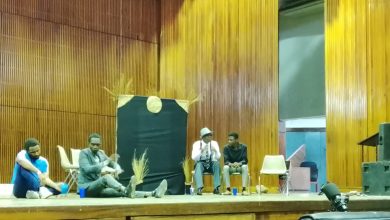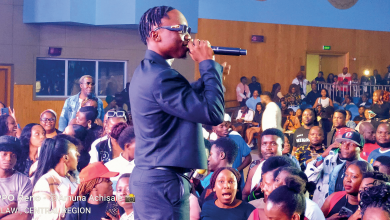Welcome to Maula: Art Speaks to Power!
Since its release on YouTube for wider access, newly released local movie Welcome to Maula Prison is once again enjoying a standing ovation and rightly so. This is a film with a message, a pulse and an unapologetic voice.
The story is relevant. The setting is relatable. Most characters are so natural—they blur the line between acting and reality. That is the magic of film, when fiction feels like fact.

While Welcome to Maula Prison is as entertaining as School Days, another hit from the same creative brand 4Kaya Filmz Inc, it steps up with something even bolder. It dares to speak truth to power.
“Poetry is not a luxury… it is a weapon,” writes Malawi’s prolific poet Jack Mapanje, whose verses shook the walls of dictatorship. Welcome to Maula Prison fits that description, an artistic protest against injustice.
It exposes the rot in the prison system, calling out the failure of successive governments to uphold human dignity behind bars.
“Which law says prisoners must have one meal a day? Which law permits overcrowding?” asks Jaliwa, one of the film’s central characters, portrayed with raw conviction by Amos Msekandiana.
Jaliwa is not just a role. He is a cinematic echo of real-life prisoner Gable Masangano, who, back in 2007, dragged the State to court over unconstitutional prison conditions. The courts sided with Masangano. Yet 18 years later, nothing has changed.
Centre for Human Rights Education Advice and Assistance (Chreaa), executive director Victor Chagunyuka Mhango whose organisation champions prisoners’ rights, praised the film: “It captures, with painful honesty, the extreme congestion in facilities like Maula Prison—where people are held under inhumane conditions, often beyond legal limits. It also exposes the deep-rooted corruption and backdoor dealings that deny justice to the vulnerable.”
The film’s brilliance lies in its duality. It makes you laugh and angry at the same time. Take the perpetual drunkard Ginte who mocks a former cabinet minister struggling to eat the horrendous prison meal.
“Chimimba chako-chi chiphwa! [your heath will deteriorate]” he jokes—your privileged body will wither. Behind the humour is a biting truth—the mighty fall hardest when systems they ignored turn on them.
Maula Prison, in reality, has hosted its fair share of political VIPs. Many have complained about poor conditions but, once released, do little to change the system. This hypocrisy is spotlighted with satirical precision in the film.
Then there’s the corruption subplot, where Kendal Kamwendo, also the film’s co-writer, plays the prison boss with chilling realism. He is not just a character; he is the system personified. Kamwendo, who plays Ndolera in the movie, runs a well-oiled criminal enterprise within the prison walls—where phones are smuggled in and scams are run from cells.
It is a scenario well known to many Malawians, yet goes on unabated.
Not long ago, Maula Orison in Lilongwe made headlines when reports emerged of a Chinese inmate being allowed out of prison for errands—a scandal that sparked public outrage.. And questions persist about presidential pardons: Who gets released, and why? Welcome to Maula Prison weaves these themes seamlessly into its narrative.
Ngũgĩ wa Thiong’o once said: “The writer cannot afford to live in ivory towers… The commitment to the people is the only thing that keeps the artist from falling.” This film lives by that ethos. It speaks not from above, but from within the struggle.
It also reflects Malawi’s multicultural reality. One character speaks tumbuka, another plays a Burundian. The diversity is not tokenism—it mirrors the true face of prison life—a melting pot of different cultures.
Mhango further notes: “Perhaps most heartbreakingly, it shows how imprisonment extends far beyond the individual, tearing apart families and leaving dependents to struggle alone. At Chreaa, we believe this film is more than art—it is a call to action. We must reform our justice system, strengthen oversight, and prioritise rehabilitation over punishment.”
Welcome to Maula Prison is not just a movie. It is a megaphone for the voiceless. A cinematic protest. A reminder that art, at its best, doesn’t just entertain—it demands change.
Of course there is room for improvement. A character of an investigator at the Anti-Corruption Bureau seemed to have limited information on how interrogation is done at the bureau. The same can be said of the presidential meeting which really was not realistic; from the setting and characters. It could just match what is expected of a presidential ceremony in real life.





